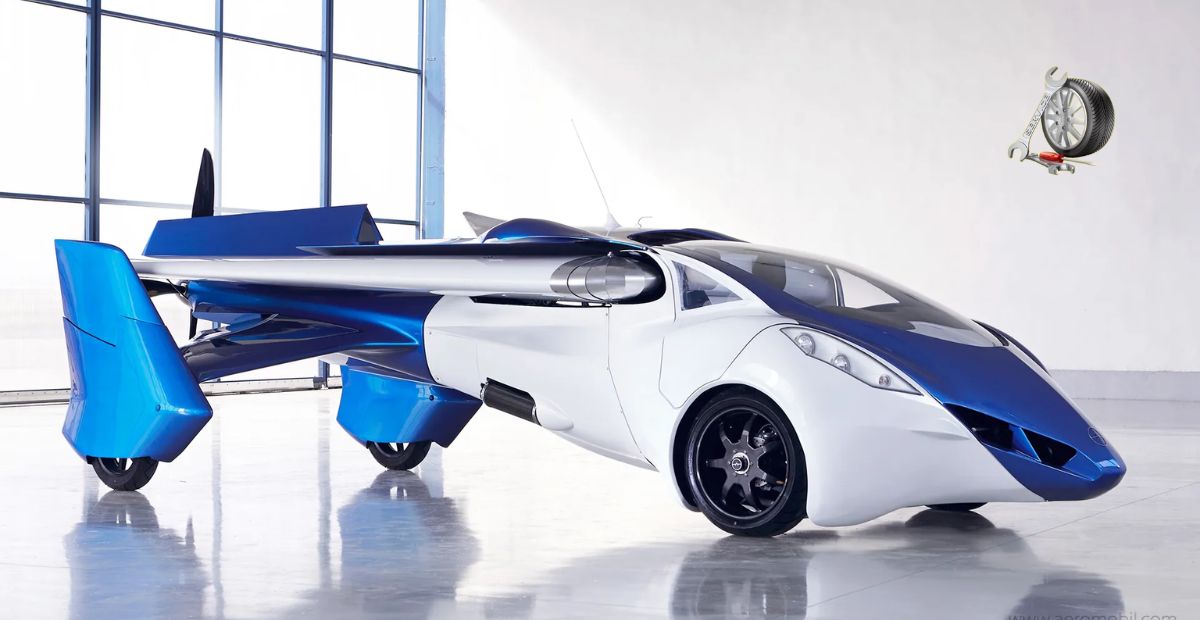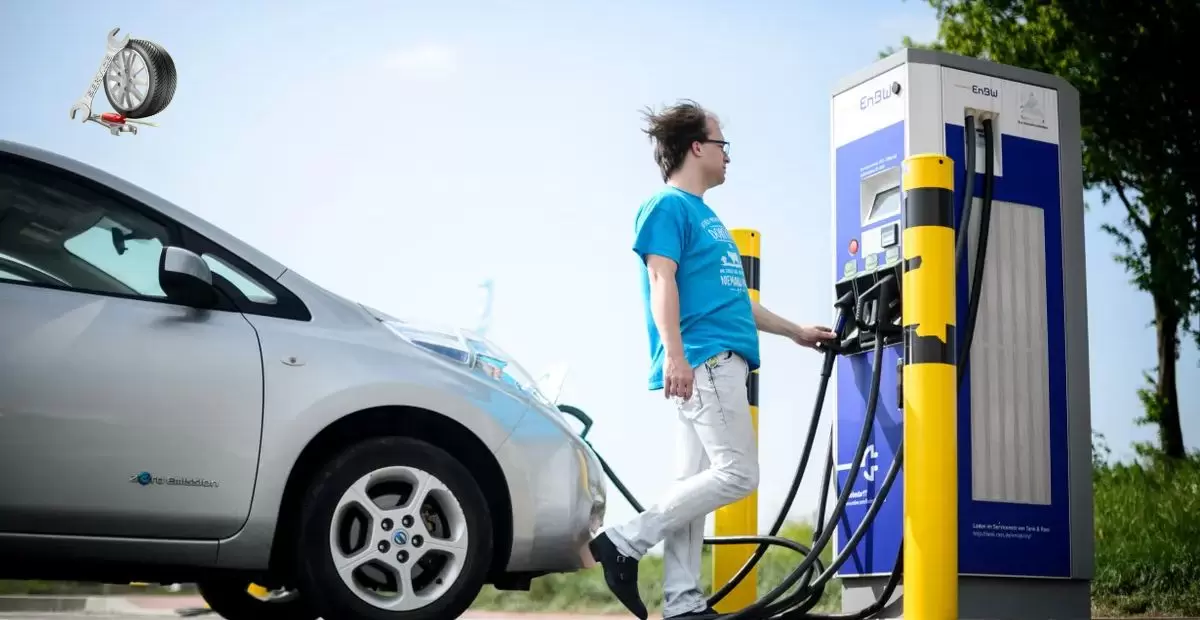Do Electric Cars Use Oil?
Electric cars don’t utilize oil since they run on power put away in batteries, dissimilar to conventional cars that depend on gas or diesel. Electric engines power these vehicles, making them cleaner and more productive. Since they don’t consume oil or radiate hurtful contaminations, electric vehicles are better for the climate.
As you explore the clamoring roads of our city, have you at any point got yourself yearning for an answer to the well-established issue: Do Electric Cars Use Oil? Envision the comfort of easily finding charging stations in a hurry, consistently coordinating practical energy into your everyday drive.
Electric cars don’t utilize oil since they burn power rather than fuel. The motor in an electric car is fueled by a battery. These vehicles are innocuous to the biological system and produce zero releases. Concerning vehicle charging, electric vehicles ought to be associated with a charging station to recharge their batteries.
Dissipating Confusions
Scattering misguided judgments about cars utilizing oil is fundamental for grasping present-day car innovation. As opposed to normal conviction, not all vehicles depend exclusively on oil for their work. Numerous more current models use elective power sources like power or frameworks, their oil utilization, and natural effects.
By recognizing that vehicles use oil yet are not exclusively reliant upon it, we open ourselves to a more extensive point of view on transportation supportability. The developing auto industry ceaselessly presents advancements that challenge conventional convictions, stressing the significance of informed choices and eco-accommodating practices.
Do Electric Cars Require Oil?
Electric vehicles don’t need oil as conventional gas-powered motor vehicles do. This is because electric vehicles use batteries and electric engines to control the vehicle, taking out the requirement for motor oil. Oil in customary fuel and diesel-controlled vehicles, which depend on oil for grease and cooling purposes.
In electric vehicles, support connected with oil changes is fundamentally decreased, prompting cost reserve funds and natural advantages. Rather than oil changes, electric vehicles might require intermittent upkeep on parts like brakes, tires, and the electric drivetrain. Their different maintenance requirements compared to traditional vehicles.
Read More: Electric Car Charging
Advantages Of Electric Cars
Electric vehicles offer various benefits over conventional gas-controlled vehicles. Right off the bat, they are harmless to the ecosystem since they produce no discharges while driving, lessening air contamination and ozone-depleting substance outflows. This proficiency means lower fuel costs on limited petroleum derivatives and manageability.
In contrast, cars that use oil not only contribute to air pollution and climate change through emissions but also rely on a finite resource whose extraction and consumption pose environmental risks. These concerns while embracing a cleaner, more sustainable mode of transportation for the future.
Do Electric Cars Rely On Oil?
Electric cars don’t depend on oil like conventional fuel-controlled vehicles do. All things being equal, they use power put away in batteries to control an electric engine, which drives the vehicle. This implies that electric vehicles don’t require oil for fuel, lessening their natural effect and reliance on petroleum derivatives.
The shift towards electric cars addresses a critical stage in lessening ozone-depleting substance emanations and fighting environmental change. By progressing away from oil-subordinate vehicles, we can diminish air contamination and relieve the natural harm brought about by removing and consuming petroleum products.
Oil Usage In Traditional Cars

Cars use oil to grease up their motors, guaranteeing smooth development of interior parts and diminishing mileage. This fundamental liquid likewise helps in cooling the motor by disseminating heat created during burning, keeping up with ideal working temperatures for effective execution.
Despite normal misguided judgments, not all vehicles use oil unreasonably. Modern engines are designed with advanced technologies to minimize oil consumption, offering better fuel efficiency and environment while still providing the necessary lubrication for engine longevity.
Components Of Electric Cars
Electric cars use parts like batteries, electric engines, and power hardware to work. These parts cooperate to impel the vehicle without depending on customary gas-powered motors energized by oil. Electric motor, drives the wheels, making them more environmentally friendly than cars that use oil.
By using power as opposed to oil, electric cars offer a cleaner and more manageable method of transportation. This shift away from oil-based cars lessens fossil fuel byproducts and reliance on petroleum derivatives, adding to a greener future for the planet. Electric cars are designed to be efficient and durable, to traditional cars that use oil.
Oil Dependency In Traditional Cars
Cars use oil as their essential fuel source, which has prompted a weighty reliance on it in conventional Cars. This dependence on oil presents critical difficulties, including ecological contamination and fluctuating oil costs. Furthermore, the limited idea of oil assets raises worries about long-haul manageability and energy security.
To alleviate these issues, there’s a rising spotlight on creating elective energy sources and improving eco-friendliness in vehicles. Advancements, for example, electric vehicles and half and halves mean to diminish or wipe out the dependence on oil, offering cleaner and more manageable transportation choices for what’s to come.
Environmental Impact Comparison
While contrasting natural effects, it’s essential to consider factors like contamination, asset utilization, and discharges. Vehicles use oil as fuel as well as in the creation of different parts. This dependence adds to contamination through emanations during extraction, refining, and burning cycles, as well as through oil slicks and holes.
Interestingly, elective transportation techniques like public travel or cycling commonly have lower oil utilization and emanations per traveler mile. Embracing these choices can diminish our reliance on oil and relieve natural effects related to its extraction and use.
Comparing Electric And Gasoline Cars
Electric cars and gas vehicles contrast essentially in their power sources and ecological effects. This differentiation is critical in tending to the developing worry over air contamination and environmental change, as electric cars offer less ozone-harming substance outflows contrasted with their gas partners.
One of the critical benefits of electric vehicles over fuel cars is their lower dependence on oil. Electric cars don’t involve oil for fuel ignition, diminishing the interest in oil-based commodities and decreasing the natural effect related to oil extraction and transportation. The significance of the antagonistic impacts of environmental change.
Future Outlook For Oil In Transportation

The future standpoint for oil in transportation seems questionable as progressions in electric and elective fuel vehicles pick up speed. States overall are carrying out strategies to boost the reception of electric vehicles, prompting a likely decrease in oil interest for transportation before long.
Despite the shift towards electric vehicles, the boundless foundation for oil-based transportation stays a significant snag to quick change. Vehicles use oil for fuel as well as in different greases and assembling processes. Changing away from oil altogether will require a significant interest in foundation and innovation.
Oil Usage In Electric Cars: Fact Or Fiction?
Oil use in electric vehicles: reality or fiction? Regardless of normal conviction, electric vehicles don’t run on oil; they depend on batteries to control their engines. While conventional vehicles use oil for oil and cooling, electric vehicles are controlled by power put away in batteries, making them all the more harmless to the ecosystem.
Cars use oil for different purposes, yet electric vehicles are testing this standard with their sans-oil activity. Even though they don’t straightforwardly consume oil for driving, the auto business’ progress to electric vehicles is slowly lessening the general oil interest, prompting a more feasible transportation future.
The Role Of Oil In Electric Car Production
Oil assumes a vital part in the creation of electric vehicles, notwithstanding the normal misinterpretation that they exclusively depend on power. While electric vehicles themselves don’t involve oil for fuel, a large number in their creation cycle do. For example, plastics, greases, and even tires are derived from oil.
In this manner, while vehicles use oil in their assembling cycle, the shift towards electric vehicles addresses a crucial stage in decreasing general oil utilization and moderating natural effects. Electric vehicles address an essential chance to moderate the ecological results of our transportation frameworks.
Oil Dependency In The Automobile Industry
The car business depends vigorously on oil for fuel, making it defenseless against vacillations in oil costs and supply. Cars use oil for gas as well as for ointments and other fundamental parts, featuring the business’ reliance on this limited asset. By far most Cars burn gas, propagating the business’ dependence on oil.
Lessening oil reliance in the auto business requires advancement and interest in elective energy sources, for example, electric cars and hydrogen power devices. Changing to these advancements can alleviate the ecological effect of petroleum derivative utilization while upgrading energy security.
Oil Consumption In The Transportation Sector
Oil utilization in the transportation area, particularly in vehicles like vehicles, is a main consideration impacting energy utilization around the world. Cars use oil for fuel as well as for grease and cooling, featuring the flexible job of oil in auto applications. The sheer number of vehicles it one of the biggest buyers of oil universally.
Regardless of endeavors to advance elective energies and electric cars, oil stays the essential energy hotspot for the transportation area. Accordingly, tracking down imaginative answers for diminishing oil utilization in vehicles and different methods of transportation is fundamental for resolving these interconnected issues successfully.
Debunking The Oil Dependency In Electric Cars

Electric cars are driving the charge in exposing the oil reliance account. While customary vehicles use oil for fuel, electric cars depend on power, decreasing our dependence on non-renewable energy sources. By embracing electric cars, we can diminish the oil interest and relieve ecological effects related to its extraction and utilization.
| Aspect | Electric Cars | Internal Combustion Engine Cars |
| Fuel Source | Electricity sourced from various | Gasoline or diesel sourced from fossil |
| renewable and non-renewable sources | fuels such as crude oil | |
| Environmental Impact | Lower emissions during operation, but | Higher emissions during operation due |
| depends on the energy mix for electricity | to combustion of fossil fuels | |
| production | ||
| Dependency on Oil | Relatively lower dependency on electricity | High dependency on oil for fuel |
| can be generated from diverse sources | ||
| Energy Efficiency | Generally more efficient in converting | Less efficient in converting fuel |
| energy to motion due to electric motor | energy to motion due to heat loss in | |
| technology | combustion process | |
| Maintenance | Fewer moving parts, potentially lower | More complex engine systems, |
| maintenance requirements | regular maintenance needed | |
| Range | Typically shorter range compared to | Generally longer range, especially |
| gasoline vehicles, but improving with | for long-distance travel | |
| advancements in battery technology | ||
| Charging Infrastructure | Expanding the network of charging stations, | Well-established network of gas |
| though may vary by region | stations |
Changing to electric vehicles is a critical advance toward diminishing our dependence on oil. With movements in advancement and establishment, the shift towards electric cars is becoming dynamically conceivable. We can prepare for an extra functional and greener future.
FAQs
For what reason don’t electric cars utilize oil?
Electric cars use power to drive their engines, so they don’t require oil for fuel or oil. They’re intended to be more energy-effective and harmless to the ecosystem than gas-controlled cars.
Do electric cars have engines like gasoline cars?
Electric cars have electric engines, not ignition motors, so they don’t need oil for grease or cooling like customary cars.
How do electric cars contribute to reducing oil consumption?
Electric cars have electric engines, not ignition motors, so they don’t need oil for grease or cooling like customary cars.
Conclusion
while electric cars themselves don’t involve oil for the drive, their assembling, support, and charging foundations depend on oil and other non-renewable energy sources to changing degrees. car charging, alongside headways in battery innovation, will be vital in understanding the full ecological advantages of electric vehicles.
In this way, coordinating environmentally friendly power sources into vehicle charging foundations is critical for diminishing the general carbon impression of electric vehicles and speeding up the change to a cleaner transportation framework. The electric vehicle lifecycle is the way for a greener, more reasonable in the domain of transportation.
